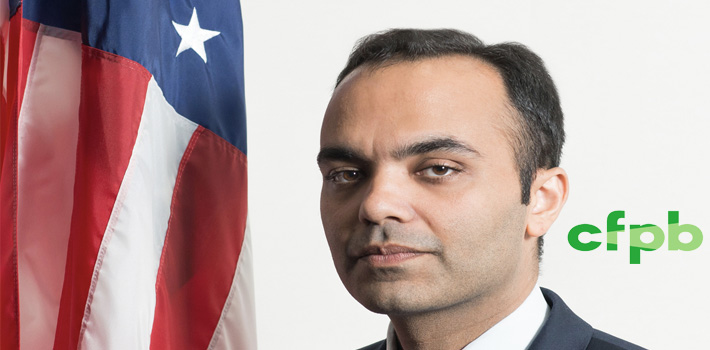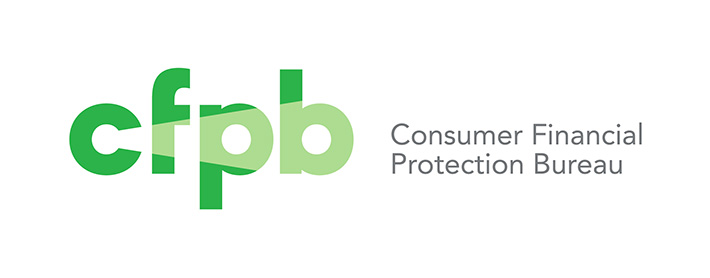Regulation
Connecticut Commercial Financing Disclosure Bill Didn’t Make it Through
May 24, 2022 In an era where it has become almost fashionable for states to introduce commercial financing disclosure laws, the bill proposed in Connecticut this past March did not make it through. Its first draft was rough, freely using ambiguous terminology like “double dipping” which was clearly drawn from an original draft presented to the New York State legislature more than a year ago.
In an era where it has become almost fashionable for states to introduce commercial financing disclosure laws, the bill proposed in Connecticut this past March did not make it through. Its first draft was rough, freely using ambiguous terminology like “double dipping” which was clearly drawn from an original draft presented to the New York State legislature more than a year ago.
The bill stalled in the Senate despite a couple of favorable committee reports. The legislature adjourned for the year on May 4th, ending the bill’s prospects for advancement in 2022. This was the second time the bill had appeared so a version of it will likely return in 2023.
Register for The 4th Annual Alternative Finance Bar Association Conference
May 12, 2022 The fourth annual Alternative Finance Bar Association conference is BACK IN PERSON. This is the go-to event for and with the industry’s leading attorneys.
The fourth annual Alternative Finance Bar Association conference is BACK IN PERSON. This is the go-to event for and with the industry’s leading attorneys.
Mark your calendars for June 15th and June 16th in New York City and register by emailing Lindsey Rohan at lindsey@lrohanlaw.com. Registration is subject to approval and space availability.
Two-day program includes the following panels:
The State of the Industry: Industry experts discuss pending legislation, case law and market hurdles. They have both a regulatory panel ready to discuss what’s new in Virginia, Utah, NY and California as well as a Courtroom panel ready to discuss the winning and losing case law that has come out in the past year.
Bankruptcy: The aftermath of Chicago v. Fulton, In re Shoot the Moon and other pivotal bankruptcy cases that shape industry practices.
Ethics: Challenges faced by internal counsel and ways to navigate those pressures.
Collections: Trends in the post-COJ, post-COVID era.
Employment/Labor Law: The rise of labor use outside the U.S. What challenges arise from having call centers outside the U.S. Tax implications, oversight and practical benefits/detriments. Post-COVID remote work implications. What you need to be aware of to avoid creating liabilities.
The Art of Arbitration: The importance of a carefully drafted Arbitration Clause and the pro/cons of this venue.
Thinking Ahead: What technologies and market conditions will shape the future of the industry. Broad discussion of Blockchain technology, CRM systems, cannabis and what we can imagine will shape the future of Alternative finance.
WEDNESDAY KEYNOTE: David Picon, Esq. – It is with great pride that David Picon of Proskauer Rose will be the Keynote speaker. For years the AFBA has admired his work from afar. Attendees now have an opportunity to learn directly from David what makes for an unstoppable litigator.
THURSDAY SPECIAL EVENT: AFBA Game Show Mash-Up with the Industry’s Legendary Attorneys. Special Guests you will not want to miss!
Speakers:
- Andrew Smith, Covington & Burlington LLP
- Brian Simon, Hollis Public Affairs
- Jamie Polon, Mavrides Moyal Packman & Sadkin, LLP
- Patrick Siegfried, Rapid Finance
- Natalie Pappas, Rapid Finance
- Keith Ellis, Expansion Capital Group
- Kate Fisher, Hudson Cook LLP
- Cathy Brennan, Hudson Cook LLP
- Blake Sims, Hudson Cook LLP
- Steve Denis, Small Business Finance Association
- Christopher R. Murray, Murray Legal PLLC
- Mark Stout, Padfield & Stout
- Shanna Kaminski, Kaminski Law Group
- Michael W. Davis, DTO Law
- John Viskocil, Fora Financial
- Gabriel Mendelberg, Mendelberg P.C.
- Anthony F. Giuliano, Giuliano Law P.C.
- Jeffrey S. Cianciulli, Weir Greenblatt Pierce LLP
- David Picon, Proskauer Rose
- Jonathan Nelson, Dedicated Financial GBC
- Lindsey Rohan, BasePoint Capital LLC
- Christina Grigorian, Katten; Zach Miller, Burr & Foreman
- Renata Buhkman, Delta Bridge Funding
- Vanessa Petty, Settle
- Alexis Shapiro, Forward Financing
- Jan Owens, Manatt Phelps
- Scott Pearson, Manatt Phelps
- Jesse Michael Carlson, Kapitus
- Robert Zadek, Buchalter
When:
Day 1 – June 15
9:00am – 4:30pm: Offices of Proskauer Rose (includes light breakfast and lunch)
5:30pm – 7:30pm: Cocktails at Dear Irving
Day 2 – June 16
9:30am – 6:00pm: 15 W. 38th Street, 2nd Fl, Sinatra Room (includes light breakfast and lunch)
4:00pm: Wine & Cheese
Register soon, SPACE IS LIMITED!
deBanked is a sponsor of the event. Industry attorneys are highly encouraged to attend.
Posting Fake Reviews To Make Your Financial Services Company Look More Appealing? The CFPB Says You Will Face The Consequences
April 21, 2022 The CFPB has put companies that offer financial products and services on notice. If you post fake reviews about yourself online, it “may result in significant penalties.”
The CFPB has put companies that offer financial products and services on notice. If you post fake reviews about yourself online, it “may result in significant penalties.”
“Corporate disinformation campaigns that suppress legitimate reviews or manufacture fake reviews are not only a threat to free speech and fair competition, they are also illegal,” said CFPB Director Rohit Chopra. According to the agency, manipulating customer reviews is unlawful under the Consumer Financial Protection Act. “Laundering fake reviews in ways that appear completely independent from the company to improve their ratings may constitute a deceptive practice,” the agency states.
Examples were provided. One involved a company that relied on its own employees to leave reviews of the company’s products, which it said was unlawful because they had not disclosed that they were employees in the reviews themselves. Another example involved paying non-employees to post materially misleading reviews.
Also apparently illegal is only showing positive reviews about ones own products while hiding or refusing to publish the negative ones.
The CFPB cited a similar initiative undertaken by the FTC. “Fake reviews and other forms of deceptive endorsements cheat consumers and undercut honest businesses,” said Samuel Levine, Director of the FTC’s Bureau of Consumer Protection. “Advertisers will pay a price if they engage in these deceptive practices.”
With the CFPB’s purview being more narrow than the FTC’s, the CFPB’s closing message was that “Banks and financial companies should ensure that their customer review practices comply with all applicable laws, including the Consumer Financial Protection Act. Violations are subject to civil penalties and other legal consequences.”
Maryland’s Commercial Financing Disclosure Bill Failed to Move Forward
April 12, 2022 Maryland’s commercial financing bill, propelled by bi-partisan support, failed to overcome the final hurdle before the State’s 2022 legislative session adjourned sine die yesterday. SB 825 passed the Senate in March and became the subject of much debate in the House of Delegates on the 30th. Testimony from 17 people was considered, much of it oral.
Maryland’s commercial financing bill, propelled by bi-partisan support, failed to overcome the final hurdle before the State’s 2022 legislative session adjourned sine die yesterday. SB 825 passed the Senate in March and became the subject of much debate in the House of Delegates on the 30th. Testimony from 17 people was considered, much of it oral.
The bill’s lofty idyllic intent is perhaps what contributed to its demise. Despite legislative enthusiasm for applying consumer style protections to commercial finance transactions, regulators tasked with its actual implementation were amongst its harshest critics.
The Consumer Protection Division of the State’s Attorney General’s Office said “the bill makes a violation an unfair, abusive or deceptive practice in violation of the Consumer Protection Act. With limited exceptions, violations of the Consumer Protection Act are limited to consumer transactions, i.e., transactions that are primarily for personal, family or household use, and expanding the CPA to cover business-to business transactions would open a door that could lead to a significant increase in the number of complaints received by the Division, requiring the Division to add corresponding resources.” The Division gave an official thumbs down on the bill.
Maryland’s Department of Labor stated that the requirements of the bill would make it “difficult to operationalize from a monitoring, investigatory and enforcement perspective” and that there would be too much uncertainty given that New York, a state that passed a similar law, has been unable to effectively implement their own version. “Maryland small businesses, lenders and borrowers alike, may be negatively impacted if the rollout of the system in New York is significantly delayed or New York enacts systems or procedures not appropriate to or anticipated by Maryland businesses,” it concluded.
Other states, like California, have encountered similar problems with commercial financing disclosure legislation. The bill it passed in 2018 still has not been implemented over lingering disputes over how to do the math it mandates.
Proponents and critics alike picked away at each other’s arguments in Maryland, but when the session ended late late Monday evening to a hail of confetti and balloons, SB 825 had not been called. This was the third year in a row that a commercial financing bill has failed. Another version will likely be introduced when the legislature eventually returns.
New Bill Would Give CFPB Regulatory Authority Over Small Business Lenders
April 1, 2022 When Congress passed a law in 2010 that gave the newly created Consumer Financial Protection Bureau a mandate to collect small business loan data, industry observers wondered just how broadly the agency would interpret that authority.
When Congress passed a law in 2010 that gave the newly created Consumer Financial Protection Bureau a mandate to collect small business loan data, industry observers wondered just how broadly the agency would interpret that authority.
At least one Congresswoman, however, feels that the statute as written is limited. That’s because Rep. Nydia M. Velázquez introduced a bill on Friday that would explicitly give the CFPB the power it lacks to oversee small business lending altogether.
H.R. 7351, the Promoting Fair Lending to Small Businesses Act, is designed to give the CFPB supervisory authority of “nondepository persons offering or making small business loans.”
“This bill will play an important role in applying the same standards for all lenders who make loans for small businesses, and especially those that have been historically underserved by lenders such as minority- and women-owned businesses,” said Velázquez.
It would be no surprise if a small business lender had not been previously aware of the CFPB’s pre-existing data-collection powers. That’s because the law that was passed twelve years ago, still has not been completely rolled out.
Utah Passes Commercial Financing Disclosure Law
March 28, 2022 The Governor of Utah signed SB183 last Thursday, a law that will require commercial financing providers to formally register with the State as well as provide uniform disclosures on the transactions they conduct.
The Governor of Utah signed SB183 last Thursday, a law that will require commercial financing providers to formally register with the State as well as provide uniform disclosures on the transactions they conduct.
Beginning January 1, 2023, covered parties will require State approval to conduct business with Utah customers. Following that, the disclosures listed below will be required in the contracts:
- Total amount of funds provided to the business
- Total amount of funds disbursed
- The total amount to be paid
- The total dollar cost of the transaction
- The manner, amount, and frequency of each payment OR the estimated amount of the initial payment
- A statement of costs or discounts associated with prepayment
- The broker’s commission amount
- Explanation of payment methodology and hypothetical circumstances that could cause it to vary
The full text can be read here. deBanked first reported on this bill on February 9th.
Utah follows Virginia, New York, and California who have all passed their own versions of a commercial financing disclosure law. Maryland is the most likely state to pass one next.
Update on Connecticut Commercial Financing Disclosure Bill
March 28, 2022The Connecticut commercial financing disclosure bill first reported by deBanked on March 3rd is still in play. SB272, written similarly to the first draft of the recently passed New York legislation, has been met with both support and opposition.
Supportive
- Connecticut Bankers Association (but with amendments)
- Responsible Business Lending Coalition
- Innovative Lending Platform Association
Opposed
- Electronic Transactions Association
- Revenue Based Finance Coalition
- Small Business Finance Association
Update on Maryland Commercial Financing Bill
March 20, 2022Maryland’s commercial financing disclosure bill is continuing to move through the state legislature. After debate with potentially affected parties, some changes were made to the bill’s language. The APR requirement on sales-based financing transactions remains in the bill, however.
The bill passed through the Senate unanimously (47-0) and has been referred to the House. The original version in the House had been withdrawn but that was most likely because the members of that chamber anticipated that substantive edits would take place in the Senate. The House will now resume review and consideration of the Senate’s version going forward.





























